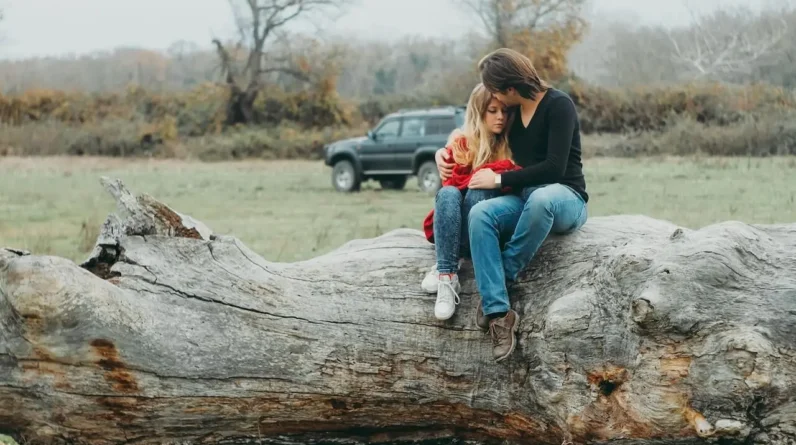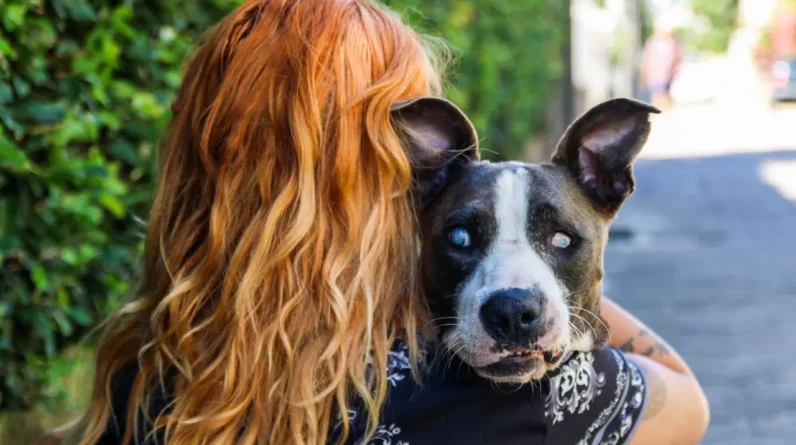
Forgiveness doesn’t mean forgetting what happened.
It also doesn’t mean that your hurt doesn’t matter. Or that the relationship will continue forward where it left off.
Rather, forgiveness is about letting go.
You have the power to choose to let go of:
- hurt
- anger
- resentment
- any other negative emotion that you no longer want part of your life
In a way, forgiveness is medicine for your mind. It allows you to step into a happier and more fulfilling life.
All of this isn’t to say that forgiveness is easy by any means.
It’s a learning curve. Yet, when you have the right tools and want to make an effort to change, it’s entirely possible for anyone in any situation. So, let’s explore how you can begin taking those steps toward forgiveness and leaving all of that negativity in the past.
The Benefits of Forgiveness
In The Lion King, the wise Rafiki said,
Forgive others, not because they deserve forgiveness, but because you deserve peace.
The truth is that forgiveness isn’t about the other person. It’s all about you. And forgiving someone for an action or behavior that hurt you has various benefits, including:
- Helping you let go of pain and other unresolved emotions.
- Improving your relationships by allowing you to trust again.
- Decreasing stress in your life (which a 2016 study actually proved!).
- Offering a chance for reconciliation (if possible and wanted by both parties).
Chances are that all of the above sounds great.
However, forgiveness can take time. In fact, for many people, this is one of the most important pieces.
Thus, it’s essential to practice compassion and kindness with yourself through the process.
Don’t force it.
Remind yourself that you’re doing it for you, not the other person. Now, how can you begin cultivating forgiveness in your life? Let’s find out.
4 Steps to Help You Forgive
Step 1: Decide to Forgive.
The most important events in our life start with a single decision. And this is exactly where your forgiveness journey begins.
By choosing forgiveness, you are deciding to accept what happened and determining a way to reconcile it in your mind.
If you’re struggling to decide to forgive, ask yourself why?
Sometimes, this struggle might happen when you haven’t recognized, felt, and released your emotions. If you’re hanging onto hurt or pain, it’s okay to let it out. Remember, crying isn’t a sign of weakness. It’s a sign that you, too, are human.
Step 2: Use Empathy.
Sometimes, a flip in perspective can help you understand that the situation potentially wasn’t even about you. Or that the person that hurt you has more problems going on underneath it all than you realized.
Imagine what would drive someone to do what they did to you. This can help offer some perspective.
While doing this, it’s also important to not slide down the rabbit hole of negative self-talk. As humans, we can always do better. Acknowledge that but don’t dwell on it or talk down to yourself. Take that compassion and kindness with you through every step here.
Practice empathy when it comes to you and the other person or persons. Sometimes, this fresh perspective is exactly what you need to process your own emotions and come to terms with what happened.
Step 3: Find Meaning.
In stressful and tough situations, many people find themselves losing purpose in life. This can lead you down a self-destructive, hopeless, and depressing path.
Instead of taking this route, try to find meaning in what happened.
- What can you learn?
- Was this situation meant to make you stronger?
- What is the takeaway?
You can also take this pain and try to switch your focus to more positive aspects of the world.
In more drastic situations, this might mean dedicating your life to helping others in similar situations or, simply, spreading little bits of kindness to others throughout your day.
Perhaps it even means holding the ones you love tighter and closer and learning how to not behave towards those you care about.
Step 4: Forgive Yourself.
In many scenarios, you might have done something you aren’t proud of. It might have been something you said or an action you regret. While you’re hard on the other person, you’re just as hard on yourself. And you’re struggling to forgive yourself.
Always remember we are all imperfect beings. The best you can do is continue to grow and evolve. Avoid self-punishing behaviors, such as smoking or overeating. Instead, be compassionate toward yourself once again.
We are all simply doing the best with what we know. You can’t punish yourself or anyone else for that.
Related Article: Here’s Why Your Past Mistakes Don’t Own and Define
Other Things You May Want to Consider…
Perhaps you’ve gone through the steps above and it’s just not clicking. You still hold a ton of anger, resentment, and hurt. Time can help. But so can the following activities:
- Talking with a friend or therapist.
- Writing a letter to the other person (you don’t have to send it or you can wait until the time is right).
- Finding a forgiveness program, such as REACH, and using it to guide you.
- Putting energy into positive activities, things, or people in your life.
- Committing to being 1% better each day.
Forgive & Let Go
As humans, our negative emotions are frequently based on old survival instincts.
For instance, during the time of hunter-gatherers, rejection used to mean almost certain death. If you were rejected from your tribe and had to fend for yourself in the wild, inevitably, this would be much harder than if you were in a group.
And this fact isn’t meant to de-validate your feelings.
Hurt is real.
Anger is real.
Resentment can build.
Feel your feelings.
Acknowledge them.
Don’t hide from them.
But at the same time, know that not all of our feelings are useful. Sometimes, when they begin to bury us or no longer serve us, it’s time to let them go. Hanging onto them isn’t doing you any good any longer.
This is exactly what forgiveness helps you do. It allows you to say goodbye to those negative feelings and step into a more positive light where you can truly flourish.
Read Next: When You’re Struggling With Not Feeling Good Enough, Try This
Editor’s note: This article was originally published Sep 17, 2021 and has been updated to improve reader experience.
Photo by Anastasiya Lobanovskaya







